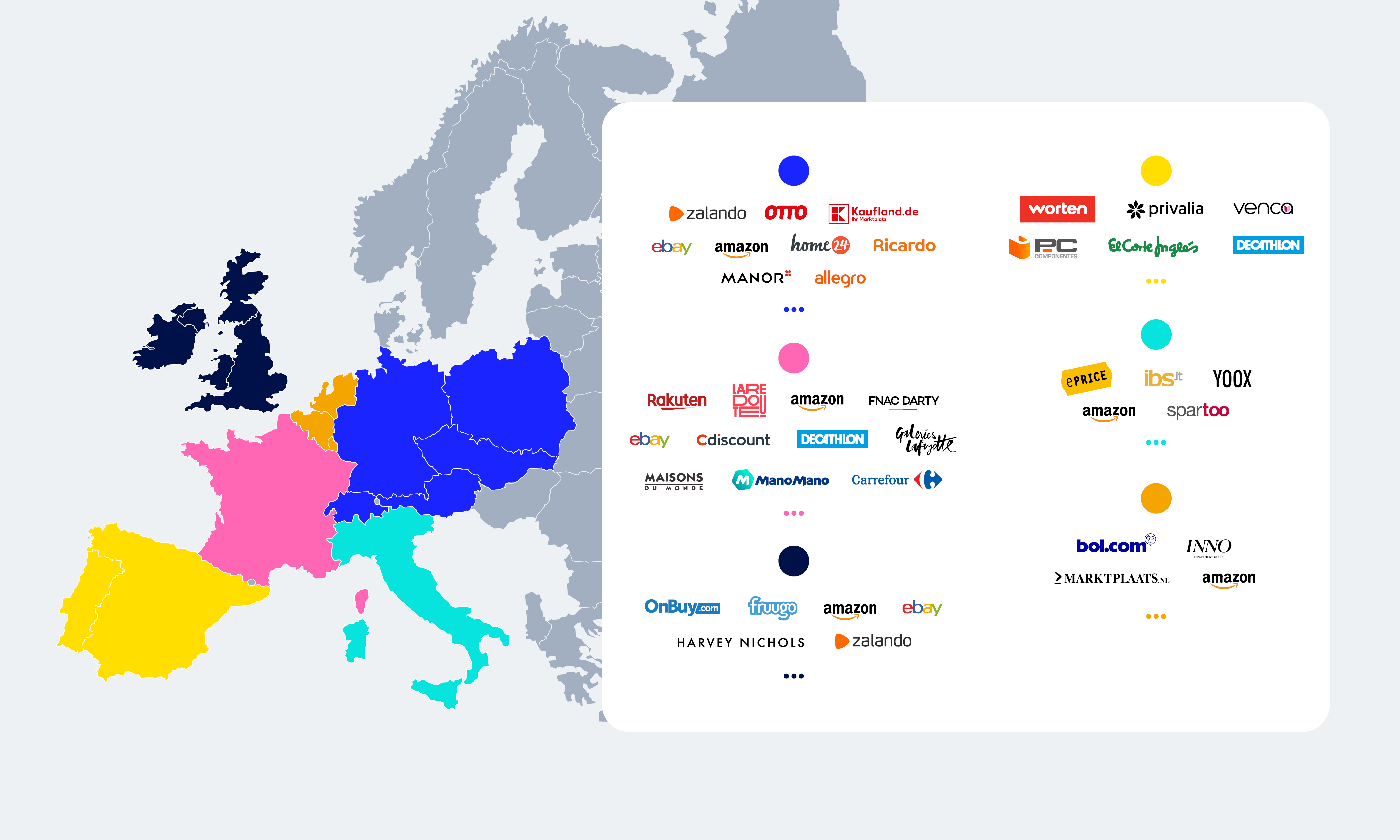Macron's Call For EU To Buy European, Not American

Table of Contents
Macron's Motivations: Strengthening European Sovereignty and Industrial Base
Macron's "Buy European" initiative stems from a desire to bolster European sovereignty and strengthen the EU's industrial base. His motivations are multifaceted and rooted in concerns about strategic dependence on the United States.
-
Desire to reduce reliance on American technology and goods: Macron argues that excessive reliance on American technology, particularly in strategic sectors like defense and advanced technology, poses a risk to European security and economic independence. This vulnerability extends to critical infrastructure and data security.
-
Boosting competitiveness of European businesses and creating jobs within the EU: Prioritizing European procurement aims to stimulate demand for domestically produced goods, fostering growth and job creation within the EU's own industries. This is a key element of Macron's vision for a more resilient and self-sufficient European economy.
-
Strengthening the EU's strategic autonomy and reducing vulnerability to external pressures: By decreasing dependence on foreign suppliers, the EU seeks to enhance its autonomy in decision-making and reduce its vulnerability to geopolitical pressures exerted through trade or technology. This aligns with broader efforts to strengthen the EU's strategic autonomy in various domains.
-
Addressing concerns about unfair trade practices and protecting European industries: Macron's call reflects concerns about potential unfair competition from American companies and a desire to level the playing field for European businesses. This aspect relates to broader discussions within the EU about protecting its strategic industries from external pressures.
Specific examples include concerns about reliance on American-made defense systems and software, where a "Buy European" policy aims to foster the development of a more robust and independent European defense industrial base. Similar concerns exist in areas such as pharmaceuticals and advanced technologies like 5G and AI.
The Economic Implications of a "Buy European" Policy
A "Buy European" policy carries significant economic implications, presenting both potential benefits and drawbacks.
-
Potential benefits: Increased demand for European products could lead to economic growth, job creation, and the strengthening of European supply chains, making them more resilient to global shocks.
-
Potential drawbacks: Restricting access to American goods could lead to higher prices for consumers due to reduced competition and potentially limited choice. This could also spark retaliatory measures from the US, potentially escalating into a trade war with significant negative consequences.
-
Impact on the EU's single market and its commitment to free trade: The policy challenges the core principles of the EU single market, which is based on the free movement of goods and services. Implementing a "Buy European" policy risks undermining the benefits of free trade within the EU and could contradict existing commitments to open markets.
-
Economic cost-benefit analysis: The true economic cost-benefit of a "Buy European" policy requires careful analysis. While it might support certain European industries, it could negatively impact others that rely on importing American goods or components. Studies examining the potential economic impacts are crucial for informed decision-making.
The Geopolitical Context: Transatlantic Relations and the Future of Global Trade
Macron's call is inextricably linked to the evolving geopolitical landscape and the shifting dynamics in transatlantic relations.
-
Shifting transatlantic relationship: Macron's initiative reflects growing tensions between the EU and the US, marked by disagreements on trade, climate change, and other global issues. It signals a shift away from the traditional close partnership, with the EU seeking greater economic independence.
-
Impact on existing trade agreements: The "Buy European" policy could impact existing trade agreements between the EU and the US, potentially leading to renegotiations or even the breakdown of these agreements.
-
Shaping future global trade dynamics: Macron’s push could influence other countries to adopt similar protectionist measures, potentially leading to a fragmentation of global trade and a move away from multilateralism.
-
Comparison with other protectionist measures: The "Buy European" approach echoes similar protectionist measures adopted by other countries, raising questions about the long-term sustainability of such policies in a globalized world. The success (or failure) of such policies in other nations serves as a case study for the potential consequences of Macron’s proposal.
Counterarguments and Criticisms of a "Buy European" Approach
Critics of Macron's "Buy European" approach raise several valid concerns.
-
Reduced competition and potential inefficiency: Limiting access to American goods could reduce competition, potentially leading to higher prices and less innovation within the European market.
-
Higher prices for consumers: Reduced competition could result in higher prices for consumers, impacting their purchasing power and overall standard of living.
-
Maintaining open markets and free trade: Supporters of free trade argue that open markets foster competition, innovation, and economic growth, benefiting both consumers and businesses. Restricting access to goods based on their origin undermines these principles.
-
Protectionism and harm to global trade: Opponents argue that a "Buy European" policy is inherently protectionist and could harm global trade by creating barriers and encouraging retaliatory measures.
Conclusion
Macron's call to "Buy European" presents a complex challenge, balancing the desire for economic independence and strategic autonomy with the potential risks of protectionism and trade disputes. While boosting European industry and creating jobs are laudable goals, the potential for higher prices, reduced choice, and trade conflicts necessitates careful consideration. The economic and geopolitical implications of this policy are far-reaching and require further analysis. The ongoing discussion about "Buy European" necessitates continued scrutiny and informed public debate. Let’s continue the conversation about the future of EU procurement and the importance of a balanced approach to European and American trade. A nuanced approach that fosters competition while strengthening the European industrial base is crucial to navigating this complex challenge effectively.

Featured Posts
-
 Updated Trans Australia Run World Record Under Threat
May 22, 2025
Updated Trans Australia Run World Record Under Threat
May 22, 2025 -
 Former Tory Councillors Wife Challenges Racial Hatred Verdict
May 22, 2025
Former Tory Councillors Wife Challenges Racial Hatred Verdict
May 22, 2025 -
 Abn Amro De Impact Van Groeiend Autobezit Op De Occasionmarkt
May 22, 2025
Abn Amro De Impact Van Groeiend Autobezit Op De Occasionmarkt
May 22, 2025 -
 Klopps Coaching Influence Hout Bay Fcs Rise
May 22, 2025
Klopps Coaching Influence Hout Bay Fcs Rise
May 22, 2025 -
 Musique Le Hellfest Au Noumatrouff De Mulhouse
May 22, 2025
Musique Le Hellfest Au Noumatrouff De Mulhouse
May 22, 2025
Latest Posts
-
 Couple Arrested Following Antiques Roadshow Appearance National Treasure Case
May 22, 2025
Couple Arrested Following Antiques Roadshow Appearance National Treasure Case
May 22, 2025 -
 Antiques Roadshow Appraisal Leads To Arrest For National Treasure Trafficking
May 22, 2025
Antiques Roadshow Appraisal Leads To Arrest For National Treasure Trafficking
May 22, 2025 -
 Couple Arrested Following Antiques Roadshow Stolen Goods Discovery
May 22, 2025
Couple Arrested Following Antiques Roadshow Stolen Goods Discovery
May 22, 2025 -
 National Treasure Trafficking Antiques Roadshow Episode Results In Arrests
May 22, 2025
National Treasure Trafficking Antiques Roadshow Episode Results In Arrests
May 22, 2025 -
 Antiques Roadshow Appraisal Exposes Theft Results In Arrest
May 22, 2025
Antiques Roadshow Appraisal Exposes Theft Results In Arrest
May 22, 2025
